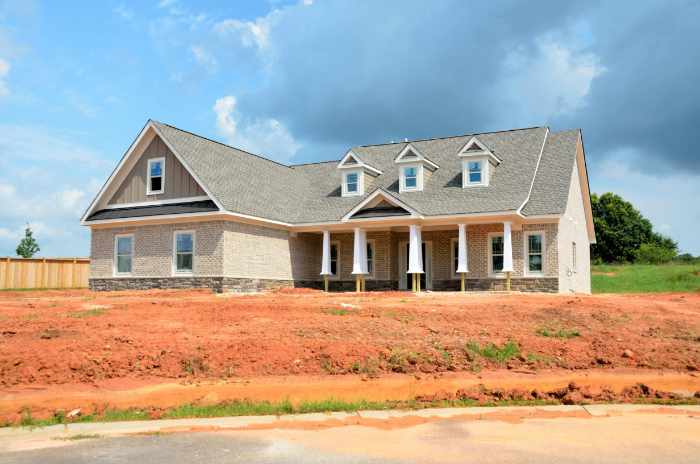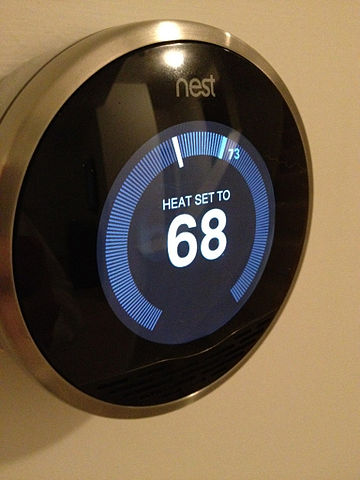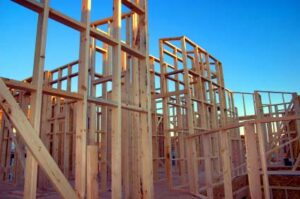The energy efficiency of your home will determine the cost of your liabilities. For a lot of people, the cost of maintaining a home (even if it’s a rental home) is one of the highest monthly expenses. This is why energy-efficient rental homes are in such high demand and why savvy homeowners and property investors prioritize energy-efficient home design principles when building a new house whether for themselves or for rental income.

Still, what are some of these design principles? How do they play into the broader scope of homeownership? Let’s check them out!
1. More Efficient Use of the Sun
The first and the most logical way this works is to install some solar panels on your roof and make your home produce energy for itself. This is a major project that will take years to pay off, but when it comes to energy efficiency in the long run, this project has no equal.
Even if you don’t want to go all-in on installing solar panels, at the very least you could use solar power for water heating. This is a smaller project that can pay itself off in a fairly small number of years, and it won’t require too much-starting capital.
When done right and combined with other methods, it can help bring your home closer to the concept of zero energy.
Even apart from taking advantage of solar energy technology, sunlight is one of your best energy savers. It’s a great way to keep your home warm and light while lowering your reliance on heating and artificial lighting.
Your south-facing windows are especially efficient in that regard, and they’re an amazing way to increase your home’s efficiency. Orientation is one of three things that make a difference here, with the other two being thermal mass (stone, concrete, and other materials that absorb heat during the day and release it at night) and the third being windows and glazing.
2. Improving Your Home’s Insulation
The next thing we need to keep in mind is the importance of keeping your home’s insulation neat and tight. The way this works is simple – you have to spend less power to keep the place warm when it’s cold or to keep it cold when it’s hot outside.
Seeing as how heating/cooling is the most expensive of all your utilities, solving this issue will make the biggest impact. If your windows are really bad, this will make an even greater difference. For instance, switching from single-pane to double-glazing windows can save you a small fortune even during the first year.
The best part is that you don’t even have to replace entire windows. All you need to make a difference are insulation panels for windows. This is simpler, cleaner, and less expensive than full window replacement. Sure, it’s not as efficient, but the cost-efficiency is definitely not lower.
Other than just replacing or improving your windows, you can also boost the insulation of your walls, insulate your roof and attic, and replace your doors. Generally speaking, you should study the chart of how your home is losing heat and address this on an issue-by-issue basis.
3. Make Your Home ‘Smart’

Smart homes can help you save a lot of energy by allowing you to control how much you’re spending. With smart home and smart appliances, you’ll even be able to automate some of your savings.
First of all, you have a smart thermostat that can be set up with a program or controlled remotely. This way, you can control the temperature even when you’re not at home and set it up when you’re on your way back. This way, you don’t have to keep it on while away. You also don’t have to worry about leaving it on accidentally when leaving your home for a prolonged period. After all, you can check and turn it off remotely.
Smart appliances can be used in the same way as a smart thermostat. You can turn them on remotely, control them remotely, and even have them run autonomously to be as energy-efficient as possible.
The benefits are not just for energy but for the overall efficiency as a whole. After all, you can also rely on the smart irrigation system.
With smart homes, you also get analytics, which means that you get to know exactly how much you’re spending (and wasting). Some of these insights can be useful in further improving your home.
This is why smart home trends are on the rise. Which means that smart contractors will be taking advantage of them.
4. Better Lighting and Appliances
Energy efficiency is not just about keeping heat in; it’s also about how your appliances use energy.
For instance, LED lights are slightly costlier to install than traditional (incandescent) alternatives, but they produce the same amount of light with 4-8 times less power. Sure, you may assume that light is not a huge factor, but consider it this way – the number of bulbs in your home times the amount of time they’re on. Most people are already using them outdoors, seeing as how they stay on all night (they’re also colder, which means there’s a lower chance that they’ll cause a fire).
Designing with LED fixtures, regardless if you’re going with a coffered ceiling with downlights or wooden ceilings is a different architectural approach. For this, you might even have to contact a luxury residential architect.
Other than this, when outfitting your home, make sure that you buy smart appliances. They are a bit more expensive as a one-time investment, but over time, they’re bound to give you an amazing return.
The biggest issue with this lies in the fact that while your home is made to save energy, your appliances may be the bottleneck. After all, this is what determines your power bill. So, make sure to consider appliance acquisition.
Wrap-up
Overall, designing homes with energy-efficient home design principles will ensure that the house will, eventually, pay a portion of your dollars back to you. It’s a way to run a more eco-friendly household, which is both a financial and ethical win for all the residents.
Just keep in mind that while everyone advertises using energy-efficient practices and creating such solutions, this won’t always be the case. Do your research and focus on what really matters.



